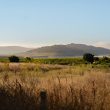Incoming USCM president Daley plays the cities’ song
He was dubbed “dirty little Richie” by a liberal state senator and named one of Illinois’ 10 worst legislators by Chicago magazine when he helped kill a great deal of legislation sponsored by opponents of the Chicago Democratic machine after he was elected chairman of the senate’s judiciary Committee in 1975.
But by 1979, Richard Daley had earned the grudging respect of liberals and independents, eventually winning the label of Outstanding Legislator of the Year by the Lieutenant Governor’s Senior Legislative Forum. Now, his hard-won reputation and political record have helped earn him the position of acting as one of the primary spokesmen for the nation’s cities as the incoming president of the U.S. Conference of Mayors (USCM).
Daley became mayor of Chicago in 1989, and by the end of his first term had turned the city’s deficit into a surplus. Currently, according to John Coyne, a speechwriter for President Nixon and Vice President Agnew, in the Sept. 11, 1995 issue of National Review, “Mayor Daley’s political stock has never been higher. In the city … property-tax increases have been less than 5 percent over six years, and taxes on businesses are being cut by $17 million. He has added more than 1,000 officers to the city police force, while trimming other departments. … And, against all odds, Daley has undertaken what increasingly appears to be a successful reformation of Chicago’s school system.”Controversy is nothing new to Daley. In 1962, as a college sophomore, he landed on the front page of the Chicago papers – his first appearance – after running a stop sign. After college, Daley became an average law student who resorted to carrying a pocket dictionary to look up words he didn’t know.
And, although he received his law degree in 1968, he failed to pass the bar exam until his third try. In a February 1989 Wall Street Journal interview with Robert Johnson, Daley displayed his pique at a question about the situation. “So I flunked the bar exam. So what? Maybe I should have committed suicide? If I had passed, they would have said my father fixed it.”
His father, of course, was the late Mayor Richard Daley, a man renowned for having created one of the most effective political patronage machines in the history of local politics.
Throughout his career, the younger Daley has often had to struggle to find his own identity in the political arena – one that is not overwhelmed by his father’s shadow. Daley was once told by his father (who persuaded a long-time state senator to retire in order to make way for his son), “I can put you on the ballroom floor, but you will have to dance yourself.” And dance he has.
CONDUCTOR OF
THE ORCHESTRA
Born in Chicago on April 24,1942, Richard Michael Daley was the fourth of seven children and the oldest son of Richard and Eleanor (Guilfoyle) Daley. He grew up in Bridgeport, a white, working-class neighborhood on the city’s southwest side.
Daley first ran, unsuccessfully, for the mayor’s office in 1983, coming back in 1989 to complete the term of Mayor Harold Washington, who had died in November 1987 of a heart attack, by defeating acting Mayor Eugene Sawyer in the Democratic primary.
He was re-elected twice, in 1991 and 1995, to full four-year terms.
During his 1989 campaign, he broke with the traditional Chicago strategy of white mayoral candidates, who focused most of their attention on the white ethnic vote concentrated in the northwest and southwest, by courting black and Hispanic voters and white liberals. (The city is about 40 percent black, 40 percent white and 20 percent Hispanic.)
The strategy worked so well that Daley now holds the distinction of becoming the first white mayoral candidate in a major American city to dislodge a black incumbent, a feat that added to the heightened racial tensions in one of the most racially divided metropolises in the United States.
Many black Chicagoans rankled at seeing a black incumbent ousted by a white. “Now blacks feel they are back on the plantation and that it is perhaps worse than it was before,” Will Sampson, a professor of sociology and political science at Northwestern University, told the New York Times (April 10, 1989).
“There is a feeling of desperation, remorse and a huge sense of loss. There is a fear that Daley will be around forever, like his father.”
To combat these tensions and help allay any fears, Daley dealt with the issue up front. “Like an orchestra, a city is made up of many sounds, the voices of people and communities, speaking out for their concerns and their fair share,” he said in his inaugural address. “The mayor’s job is to act as the conductor, blending the sounds so that no voice is drowned out, and city politics serve the common interest of the Chicago community.”
He backed up his statements by retaining Sawyer’s black police chief and appointing blacks and other minorities to key leadership positions. In fact, of his first two dozen senior appointees, half were black, Hispanic or Asian.
“For crying out loud!”
During his first 100 days in office, Daley won passage of a strict new ethics-in-government bill and did away with many of the perks traditionally enjoyed by top officials in the city government. For example, he sold the mayor’s limousine and took city cars away from dozens of government executives. “We’ve got a $120 million shortfall in the budget, and people were handing out cars like lollipops,” he told the New York Times (May 28, 1989). “It’s about time somebody around here said, ‘No!'”
In a much publicized move, Daley even called a tow truck to remove automobiles – including his own press secretary’s car – parked illegally around City Hall. “For crying out loud,” he says, “people couldn’t even walk up to their city hall because all these politicians had their cars blocking the way.”
Community Policing Program. Daley’s community policing program is quickly becoming a national model. He has added more than 1,000 police officers to the Chicago force, and another 250 have been moved from desk jobs to patrols.
The policing program is designed to “bring other agencies of government directly into the process, tearing down abandoned buildings, towing away abandoned cars, erasing graffiti, improving street lighting and removing pay phones used by drug dealers,” Daley says.
Daley enlisted the active participation of the people of Chicago by forming advisory councils to track court cases and address other community issues that contribute to crime.
And beat officers and community leaders receive extensive training, sharing that knowledge with residents during monthly meetings in the city’s 279 beats, discussing crime problems and developing crime-fighting strategies.
“We have also equipped each police station with computers that can produce maps showing crime patterns in every neighborhood of Chicago Daley says. “By standing together against crime, we can take back our kids and our streets block by block and community by community and make a real difference in the lives of the people we know and love.”
Economic Development. To create a pro-business climate, Daley has cut annual business taxes by $17 million, and established a business-by-business assistance program to support existing companies and spur neighborhood development.
He has actively advanced major projects, like the expansion of McCormick Place, the renovation the Navy Pier and the construction a light rail system in the Loop. City-levied property taxes have increased less than 5 percent in five years, and Chicago’s bond rating was increased by Standard & Poor’s, a rarity among major American cities.
Crime-fighting Partnership. “Tackling crime requires a broad strategy and a team effort,” Daley says. “We’ve done that by putting more police on the streets, instituting community policing, enacting tougher penalties for gun possession, giving police the resources to fight gangs and restricting the sale of the most lethal weapons – the kinds that kill our police officers.”
As a result of this strategy, homicides fell in 1995, hitting a five-year low. In addition, non-lethal shootings were down by more than 16 percent, drive-by shootings fell by more than 34 percent, and the number of handguns seized by police declined by more than 22 percent. Additionally, the number of banned assault weapons seized declined by more than 30 percent.
Currently, Daley is fighting two efforts he thinks would damage Chicago’s crime-fighting program: one would overturn the city’s Anti-Gang Loitering Ordinance and one would repeal the federal assault weapons ban.
Police Superintendent Matt Rodriguez applauds the mayor’s stand. “From a law enforcement perspective and a community partnership perspective,” he says, “it is critical that we retain these legal tools.”
After-school Program. Initiated by the Chicago department of Cultural Affairs in 1991, Gallery 37 provides on-the-job training in the arts, operating for eight weeks each summer with satellite programs in several Chicago neighborhoods.
Daley recently announced that the Chicago Public Schools, in partnership with Gallery 37, had launched “Gallery 37 After School,” a new after-school program to provide job training in the arts at 16 Chicago high schools.
Like Gallery 37, the after-school program will use independent arts organizations to develop and implement the arts curriculum.
Operating on a budget of $432,000, the program will pay 340 apprentice artists (20 in each school) a stipend of $400 for 140 studio hours of work. In addition, it will employ 30 to 35 teaching artists to provide training in the visual, performing and literary arts.
Traffic Management Task Force. The task force has compiled a list of projects and special events that have a significant impact on traffic.
Information about construction and special events is provided on the Mayor’s Traffic Hotline, which residents can access 24 hours a day by dialing “STREETS” for a recorded message. During the winter months, the recording includes up-to-date information regarding snow route parking bans.
CHICAGO96
One of Chicagoans’ least favorite moments in the spotlight occurred during the 1968 Democratic Convention, when club-wielding police battled unarmed anti-war protestors in a riot that blackened the city’s eye on national television.
During that convention, Daley, just 26 at the time, stood with his father on the convention floor as the famous Battle of Michigan Avenue raged in front of the Hilton.
Television viewers were treated to what Chicago Tribune columnist Mike Royko, in “Boss: Richard J. Daley of Chicago,” called “mass clubbings, people shoved through broken restaurant windows, chased into the lobby of the hotel … in one of the most dramatic moments in the history of the medium.”
Both father and son ignored what was happening on the streets outside the convention center, in Royko’s words, “trying to participate in a convention as if nothing happening on the street was in any way connected with it.”
But at some point, the attitude inside the convention center became frustrating for several participants.
“The chairman of the Colorado delegation interrupted the proceedings to say: ‘Is there any rule under which Mayor Daley can be compelled to suspend the police state terror being perpetrated at this minute on kids in front of the Conrad Hilton?'” Royko recounted. “Son Richard and other Illinois delegates turned and bellowed insults at him.”
The question prompted a heated reply from Daley to New York Sen. Abe Ribicoff.
According to one Washington newspaper, a television-watching lip-reader determined that Daley had launched an anti-semitic, obscenity-laden tirade against Ribicoff.
“To this day,” wrote Coyne in the National Review, “[Richard M. Daley] has never spoken publicly about what he thought and felt during those days of rage, when a political party and the politics of a generation were skewed beyond recognition – and when his father and the city he personified became a symbol of intolerance and repression.”
Partly because of that incident, the city, which had once been a regular on the national convention circuit, was left out of the loop for the ensuing three decades.
This year, however, as proof that attitudes have changed, the Democrats have once again chosen Chicago to host their convention, which is scheduled to take place in August at the city’s new United Center.
Daley’s successful struggles to create his own political identity have also helped reshape those attitudes, as the general perception is that he is quite different than his father.
Indeed, while Daley’s dance steps may have been initiated by his father, the tempo and direction he has acquired are uniquely his own.




















